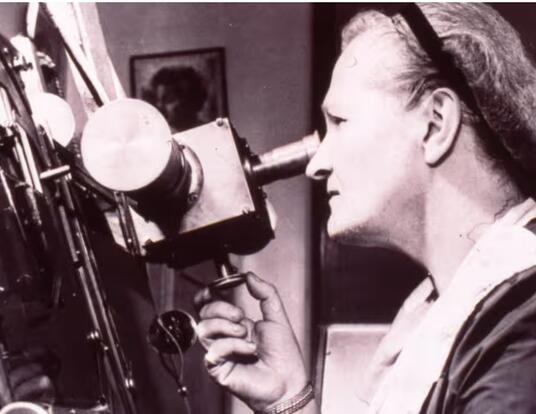The Education of an Anti-Colonialist
At GSAS, Ralph Bunche studied imperialism up close. Then he spent his life trying to dismantle it.
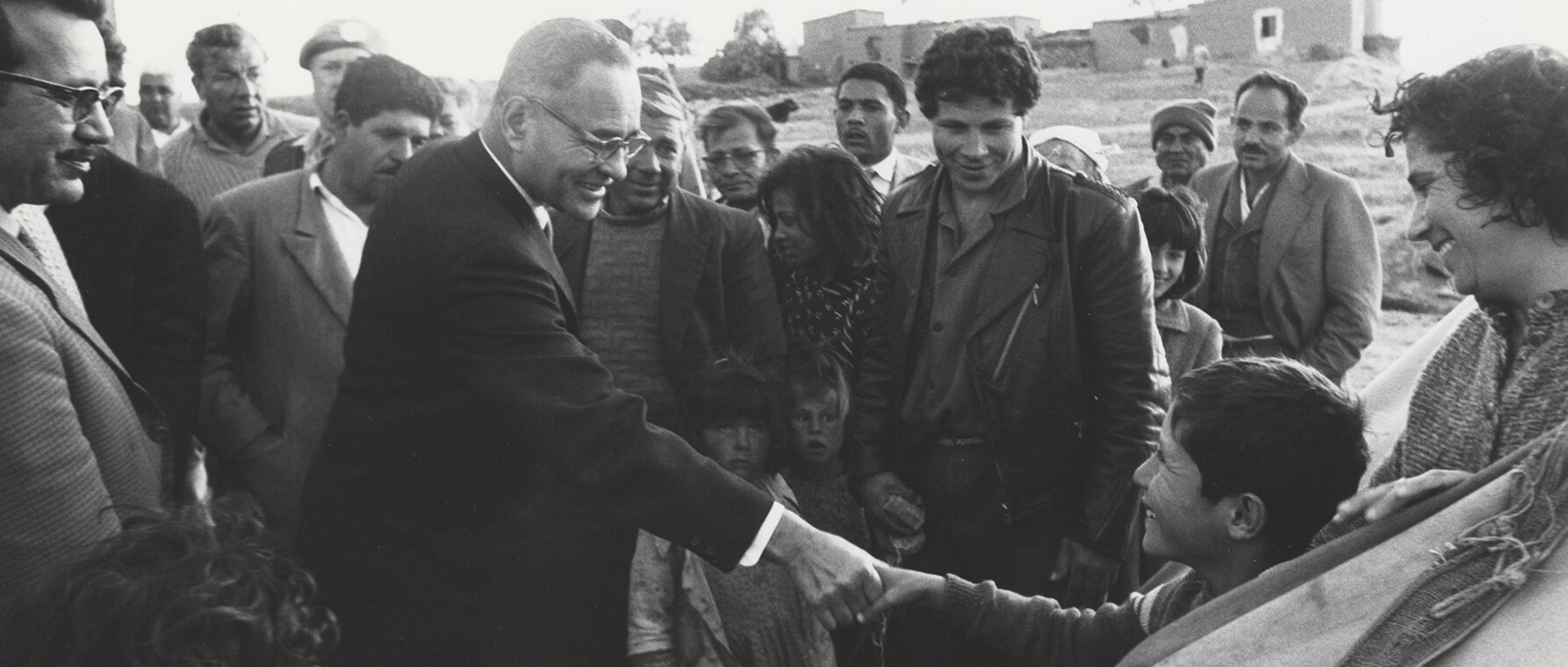
Scholar and diplomat, servant of the emerging world order,
he has opened up new vistas in the demanding quest for international justice and peace.
Citation read by President Lyndon b. Johnson presenting the Medal of Freedom to Ralph J. Bunche, December 6, 1963
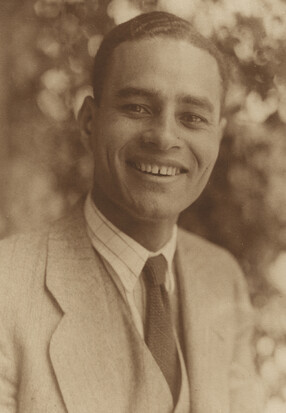
Since its founding in 1872, Harvard’s Graduate School of Arts and Sciences (GSAS) has been an incubator for some of the great scholars, thinkers, and leaders of the last 150 years. The work of the School’s alumni in an astonishing range of disciplines—from quantum physics to gender studies—has changed the way human beings think and live. It is hard to argue, though, that any GSAS graduate has had an impact on the lives of more people than Ralph Johnson Bunche, PhD ’34.
“By tailoring the language in the 11th and 12th Chapters of the UN Charter, Bunche made it possible for the United Nations to recognize the peaceful self-determination of those being exploited by colonialism,” said then-Senator Joe Biden in 2003. Speaking in favor of a congressional resolution, “recognizing the importance of Ralph Bunche as one of the great leaders of the United States, the first African American Nobel Peace Prize winner, an accomplished scholar, a distinguished diplomat, and a tireless campaigner of civil rights for people throughout the world,” Biden called Bunche a “visionary man of peace,” as well as “one of the 20th century’s foremost figures.”
The foundation for this remarkable career was laid at GSAS, where, as a PhD student in the 1930s, Bunche journeyed to Africa and saw firsthand the impact of colonialism on its subjects. “Powerful industrial nations have raped Africa under the false pretense of soldiering the white man’s burden,” he wrote in A World View of Race, published soon after he finished his doctoral dissertation on French colonialism in Africa. “The directive motive in this process is human greed.”
Bunche’s experience at Harvard led to a lifelong effort to dismantle the regimes under which over half of the world’s people lived during the first decades of the 20th century. The knowledge he created and the relationships he formed at GSAS enabled him to become an architect of the new international order that prevailed after World War II—one in which hundreds of millions of colonized peoples gained their independence. Long after he left Cambridge, Bunche’s doctoral work continued to shape his efforts to end imperialism, lift up new nations, and quell the conflicts that often arose at their birth.
A World View of Race
The orphaned child of a low-income Black family that relocated from Detroit to the West Coast, Bunche graduated top of his class at Los Angeles’s Thomas Jefferson High School and at the University of California. He won a fellowship for graduate study at Harvard and enrolled at GSAS in 1927, thanks largely to the efforts of the women in LA’s Iroquois Friday Morning Civic and Social Club, who raised money for his travel and living expenses.
Tailoring the language in the 11th and 12th chapters of the UN charter, Bunche made it possible for the united nations to recognize the peaceful self-determination of those being exploited by colonialism.”
-Joe Biden, 2003
Upon completion of his master’s degree in 1928, Bunche was awarded another fellowship and the opportunity to continue his work as a PhD candidate. He paused his studies, though, to join the faculty of Howard University, the top historically Black institution in the country, where he was invited to found and build a political science department. After only one year at Howard and in the stultifying segregation of Washington, D.C., however, Bunche went on leave and returned to GSAS to begin the research that would send him to Africa for the first time.
At the suggestion of Raymond Leslie Buell, an assistant professor and then tutor in Harvard’s government department, Bunche determined to study the administration of Dahomey, a French colony, and the territory of Togoland, which had transitioned from German to French control as part of the mandate system established by the League of Nations after the First World War. Under Article 22 of the League’s charter, mandates entrusted the “tutelage” of “peoples not yet able to stand by themselves under the strenuous conditions of the modern world…to advanced nations who by reason of their resources, their experience or their geographical position can best undertake this responsibility.”
“The mandate system is essentially a way to extend colonial rule indefinitely while making an argument about a ‘civilizing mission,’” says Christopher Dietrich, a professor at Fordham University who studies diplomatic history. “It doesn’t state that independence is the ultimate goal. More importantly, there’s no way for the inhabitants of a colonized territory to petition the League of Nations directly. The only official reporting mechanism that exists comes from the imperial powers themselves.”
Buell was the author of the massive two-volume work The Native Problem in Africa, which became the standard for the study of colonialism for two decades. Bunche aimed to test Buell’s conclusions that the subjects of a mandate—which was supposed to be dedicated to the “well-being and development” of its people—were generally better off than those in a colony. He traveled to London and Paris to study colonial records and then to Geneva, where he connected with officials at the League of Nations. Bunche then journeyed to West Africa, where he conducted extensive field research.
He was deeply troubled by what he found.
“He calls the mandate system of the League of Nations ‘annexation thinly disguised,’” says Dietrich. “He finds forced labor, forced taxation of native labor, and not enough oversight of colonial practices. It’s a sterling example of exploitation.”
In the end, Bunche found little practical difference in the governance of a mandate and a colony. “To the Togolese,” he wrote, “the French in Togo are merely some more colonial administrators with a new and strange language and a knack for collecting taxes. In truth, this new status means little to them now and will continue so for many years.”
Bunche’s research won him the 1934 Toppan Prize at Harvard for the best dissertation in government—and made him the first Black American to earn a doctorate in that field. A meticulous study conducted with the prospect of an academic career in mind, the work on French colonialism in Africa would actually form the basis for a diplomatic career that shaped the fate of nations in the second half of the 20th century.
Bunche’s PhD research set him on a path that would eventually result in global change, inspiring and informing his work for peaceful national self-determination throughout his career. “The first line in his dissertation, that ‘imperialism is a policy of conquest,’ never leaves his mind,” says Dietrich. Scholars and Bunche experts point to several specific instances when his time at GSAS had a more direct influence on events in his life—and in the world.
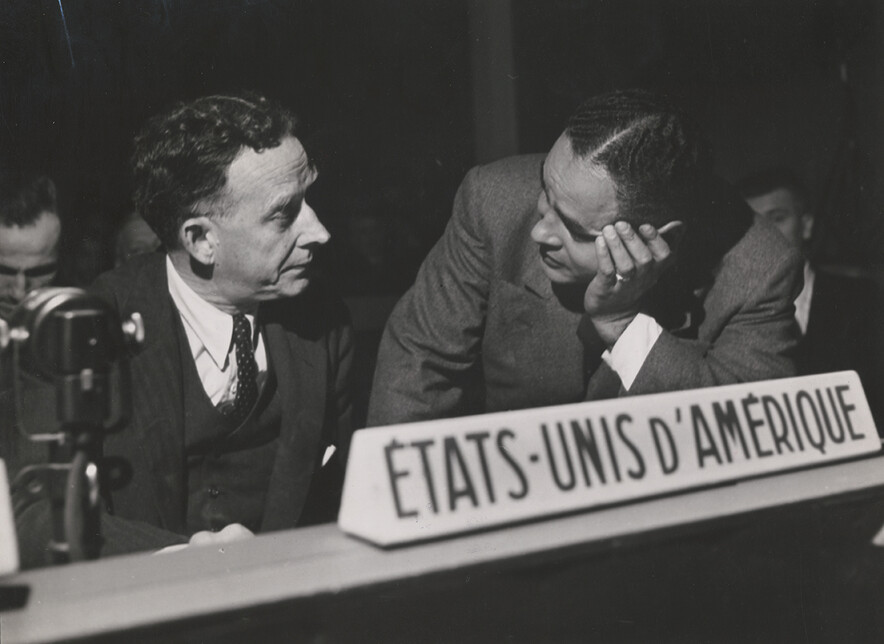
The Scholar as Diplomat
Bunche was recruited to work with the US Office of Strategic Services during World War II, eventually moving to the State Department. In 1945, he joined the US delegation on the project that would be the most far-reaching achievement of his extraordinary career: the drafting and negotiation of the charter for the United Nations (UN).
Going into the 1945 San Francisco Conference that would give birth to the UN, it was unclear whether there would be any mention at all in the charter of the right of the world’s colonized peoples to self-government. Dietrich says that Bunche’s doctoral work, which centered around his critique of the League of Nations mandate system and focused on the experience of subject peoples, was a driving force in his work on the UN charter.
“[Bunche’s] goal is to reform the mandate system,” Dietrich says. “The desire to understand the perspective of the subject peoples’ needs and wishes and to move towards independence, that’s the root of his work on the UN charter and the Trusteeship Council in the 1940s.”
On the train to the San Francisco conference, Bunche drafted what would become chapter 11 of the UN charter, then slipped the text to the Australian delegation to circumvent the US delegation’s reluctance to submit it. The final version was the “Declaration Regarding Non-Self-Governing Territories,” which pledged colonial powers in principle to the development of self-government and free political institutions for the people in the territories they controlled.
Bunche wanted to go further. In the first session of the UN General Assembly in 1946, he worked successfully to pass a resolution that committed nations in principle to report back to the UN on the economic, social, and educational conditions in their colonies. James T.L. Dandridge II, vice chairman of the board of directors of the Diplomacy Center Foundation and president of DACOR Bacon Foundation, says that Bunche’s work on the UN charter had a dramatic impact on colonized people around the world during the second half of the 20th century.
The desire to understand the perspective of the subject peoples’ needs and wishes and to move towards independence, that’s the root of [Bunche’s] work on the UN charter . . . in the 1940s.”
-Professor Christopher Dietrich
“Chapter 11 is where he had the opportunity to say, ‘Okay, we’re going to now come up with timelines on development,’” says Dandridge, a lifelong foreign service officer who met Bunche as a college student at Howard University. He says, “You’re going to report back to the UN on where you are on developing an education system, where you are on developing a transportation system, where you are on developing all the systems people are going to need for self-governance. Thanks to Bunche’s work, you have virtually out of nowhere a whole hemisphere of countries that go from colonies to independence over the ensuing decades.”
In 1947, the UN’s first secretary-general, Trygve Lie, tapped Bunche to assist the Swedish diplomat Count Folke Bernadotte in mediating the conflict between Jews and Arabs that had broken out in the British mandate of Palestine. Here again, the knowledge of the mandate system that Bunche accumulated during his doctoral work at GSAS made him indispensable to the negotiations.
The assignment nearly cost Bunche his life. It won him the Nobel Prize.
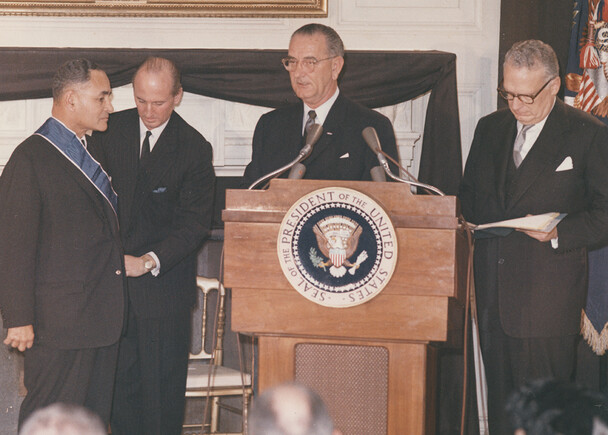
Killing Work
With Bernadotte, Bunche worked to draft an armistice between the new state of Israel, then at war with Palestinian Arabs as well as forces from the nations of Egypt, Lebanon, Transjordan, Syria, and Saudi Arabia. Perhaps the most controversial part of their proposal was to site the city of Jerusalem in the Arab sector of the recently partitioned territory that had been Palestine. Shortly thereafter, Bernadotte was assassinated by the Stern Gang, a Jewish paramilitary organization. Bunche, who was scheduled to join Bernadotte, had been targeted as well but was delayed getting into the city from Jerusalem’s Kalandia Airport.
There was little time for him to contemplate his mortality. It was now Bunche’s responsibility to mediate peace. He immersed himself in the negotiations and was available to speak day and night whenever new information or instructions were received. He spent countless hours drafting and redrafting new compromises. When formal negotiations ground to a halt, he sought more informal, human interactions with his counterparts, staying up late to play billiards and talk casually. The work was incremental, exhausting, and at times demoralizing.
“I talk, argue, coax and threaten these stubborn people day and night, in the effort to reach agreement,” he wrote to his wife, Ruth. “I make a bit of progress here and another bit there, but it is so slow and so arduous. Sometimes I feel that I should just tell them to go home and forget about an armistice. . . . This is killing work.”
As the group got closer to an agreement, Bunche tried humor—and, perhaps, a bit of intimidation—to break the impasse.
“Bunche invited the Israelis to come to his bedroom late at night,” Dandridge says. “Then he invited the Egyptians. He opened a drawer and showed them some ceremonial plates that he had made. Then he said, ‘I got these lovely plates so that when we finish and sign a peace agreement, I’m going to give one to each of you as a souvenir. And if we don’t come to an agreement, I’m going to break the plates across your heads!’ Everyone laughed and there was direct communication between the Israelis and the Egyptians. Soon after, they signed the agreement.”
The first African American to be awarded the Nobel Peace Prize nearly turned it down. When notified of the award in December 1950, Bunche initially wrote a letter to decline, stating that “peacemaking at the UN was not done for prizes.” He relented, though, at the urging of Lie, who told him that the recognition would be good for the still-young international institution.
Despite offers to join the administrations of presidents Truman and Kennedy—and an offer to join the Harvard faculty—Bunche continued to work at the UN throughout the 1950s and 1960s. His legacy includes other landmark successes, such as his role in the establishment of UN peacekeeping operations. It also includes some failures, such as his inability to mitigate the bloody crisis of Congolese independence. Until his death in 1971, Bunche continued to work for peace and the liberation of the people of color historically subjected to colonial rule.
In 2003, Lawrence Finkelstein, who served with Bunche as a member of the US Delegation to the San Francisco Conference on the UN Charter, remembered his old friend:
The world today sorely needs Ralph Bunche’s gifts, his worldview, his passion honed by tact, his intelligence informed by experience, his prestige at home and abroad, and his devotion to his favorite Scriptural passage: “They shall beat their swords into ploughshares, and their spears into pruning hooks; nation shall not lift up sword against nation, neither shall they learn war any more.”
Nearly two decades later, Finkelstein’s words—and the contributions of one of GSAS’s most remarkable graduates— resonate more strongly than ever.
Photos: Ralph J. Bunche Papers, Library Special Collections, Charles E. Young Research Library, UCLA.
Get the Latest Updates
Join Our Newsletter
Subscribe to Colloquy Podcast
Simplecast




